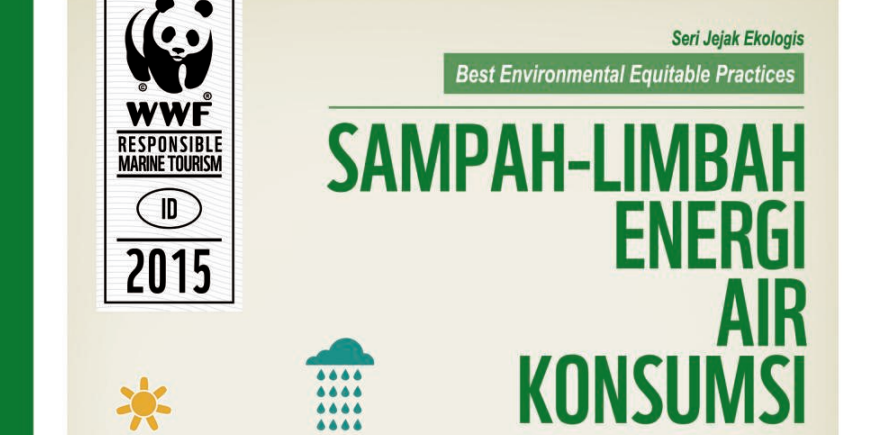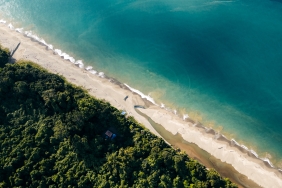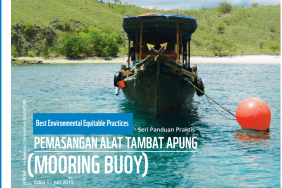BEEP - ECOLOGICAL FOOTPRINT SERIES
This guidebook was developed by the WWF-Indonesia Responsible Marine Tourism Program team with the support of a number of practitioners and academics. The series covers the various ecological footprints left by tourism activities, from litter and waste, to energy and water use, to (sometimes) excessive consumption. There is also a brief explanation of emerging issues related to the topics: energy utilization, waste management, water utilization, and consumption patterns in Best Environmental Equitable Practices (BEEP). The description is then followed by examples of best practices that should be done to minimize the impact of tourism activities on the environment, socio-cultural, and economic aspects.
Tourism activities are one of the most resource- and energy-intensive sectors in the world. One of the reasons is because these activities utilize considerable technology and energy to run their operations, ranging from transportation, communication, to meeting facility needs. This high energy utilization is followed by the production of carbon gases that produce negative impacts on the environment and affect the environment and humans.
The production of excessive carbon gases into the atmosphere contributes to increasing global temperatures known as global warming (global warming). This increase in global temperature has far-reaching impacts and threatens the preservation of nature in many of the world's tourist sites, including marine tourism sites. A one-degree increase in temperature can be fatal to coral reef ecosystems in the ocean. Rising temperatures cause the loss of plant cells that are symbiotic with corals, and cause coral bleaching (coral bleaching) and loss of food sources, if it continues then the coral will die. Rising global temperatures due to melting polar ice caps are also causing sea levels to rise. Coastal areas and small islands in the Pacific Ocean are certain to be the biggest beneficiaries of this situation.
Therefore, choosing wise steps characterized by sustainable energy utilization practices can contribute to reducing carbon emissions globally. Wise energy utilization also brings direct environmental, social and economic benefits. The word "wise" in energy consumption can be interpreted as a commitment and action to reduce energy utilization as much as possible and seek renewable energy alternatives.
It is hoped that the reader will get an overview of the ecological footprint arising from each tourism activity, and further inspire the reader to decide, and apply wise measures to reduce the negative impact of tourism activities.





